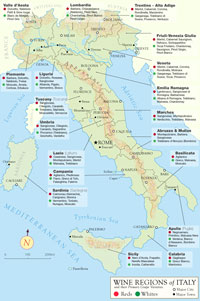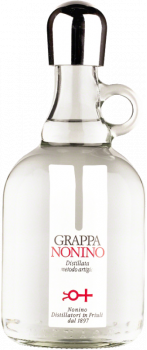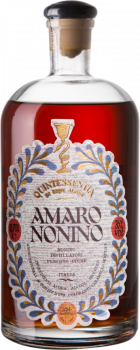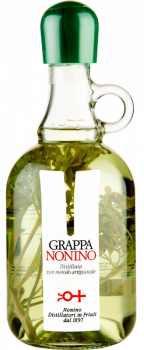Showing 1 to 15 of 15 (1 Pages)
Buy Spirits from Italy
Italy is one of the countries in the world with the greatest variety of wine styles, local climates and indigenous grape varieties. Like France, Italy complies with wine production legislation, but Italian wines have a unique personality. Geographically, it has the ideal characteristics to produce excellent wines: well oriented hillsides, sunshine and a Mediterranean climate. The long chain of mountains that extends from the Alps to the south guarantees an ideal combination of latitude, altitude and sun exposure. Many of the soils are of volcanic origin, others of limestone and there is an abundance of stony clay. However, in Italy there is a great diversity of soils so it is impossible to generalize the characteristics of the wines.
Let us not forget that Italy is the second largest wine-producing country, with 53 million hectoliters, after France, and is the third Poundpean country with the largest vineyard extension (850,000 hectares). The 19 regions that make up the Italian wine-growing panorama are: in the northern part Piedmont, Valle d'Aosta, Liguria, Lombardy, Emilia Romagna, Veneto, Trentino-Alto Adige, Friuli-Venezia Giulia and Tuscany; in the central part Umbria, Marche, Abruzzo and Molise; and in southern Italy Lazio, Campania, Basilicata, Calabria, Apulia, Sicily and Sardinia.
As regards appellations and mentions, Italian law follows the following wine categories:
- Vino di tavola: table wine, the most basic category for Italian wines.
- Indicazioni Geografiche Tipiche (IGT): the Italian version of vins de pays in France or vinos de la tierra in Spain.
- Denominazione di Origine Controllata (DOC): The alternative to the French AOC or Spanish DO.
- Denominazione di Origine Controllata e Garantita (DOCG) : Category granted to top quality areas.
- ;
- ;
- ;
- ;
- ;
- ;
- ;
- ;
Buy Spirits from Italy
Italy is one of the countries in the world with the greatest variety of wine styles, local climates and indigenous grape varieties. Like France, Italy complies with wine production legislation, but Italian wines have a unique personality. Geographically, it has the ideal characteristics to produce excellent wines: well oriented hillsides, sunshine and a Mediterranean climate. The long chain of mountains that extends from the Alps to the south guarantees an ideal combination of latitude, altitude and sun exposure. Many of the soils are of volcanic origin, others of limestone and there is an abundance of stony clay. However, in Italy there is a great diversity of soils so it is impossible to generalize the characteristics of the wines.
Let us not forget that Italy is the second largest wine-producing country, with 53 million hectoliters, after France, and is the third Poundpean country with the largest vineyard extension (850,000 hectares). The 19 regions that make up the Italian wine-growing panorama are: in the northern part Piedmont, Valle d'Aosta, Liguria, Lombardy, Emilia Romagna, Veneto, Trentino-Alto Adige, Friuli-Venezia Giulia and Tuscany; in the central part Umbria, Marche, Abruzzo and Molise; and in southern Italy Lazio, Campania, Basilicata, Calabria, Apulia, Sicily and Sardinia.
As regards appellations and mentions, Italian law follows the following wine categories:
- Vino di tavola: table wine, the most basic category for Italian wines.
- Indicazioni Geografiche Tipiche (IGT): the Italian version of vins de pays in France or vinos de la tierra in Spain.
- Denominazione di Origine Controllata (DOC): The alternative to the French AOC or Spanish DO.
- Denominazione di Origine Controllata e Garantita (DOCG) : Category granted to top quality areas.






